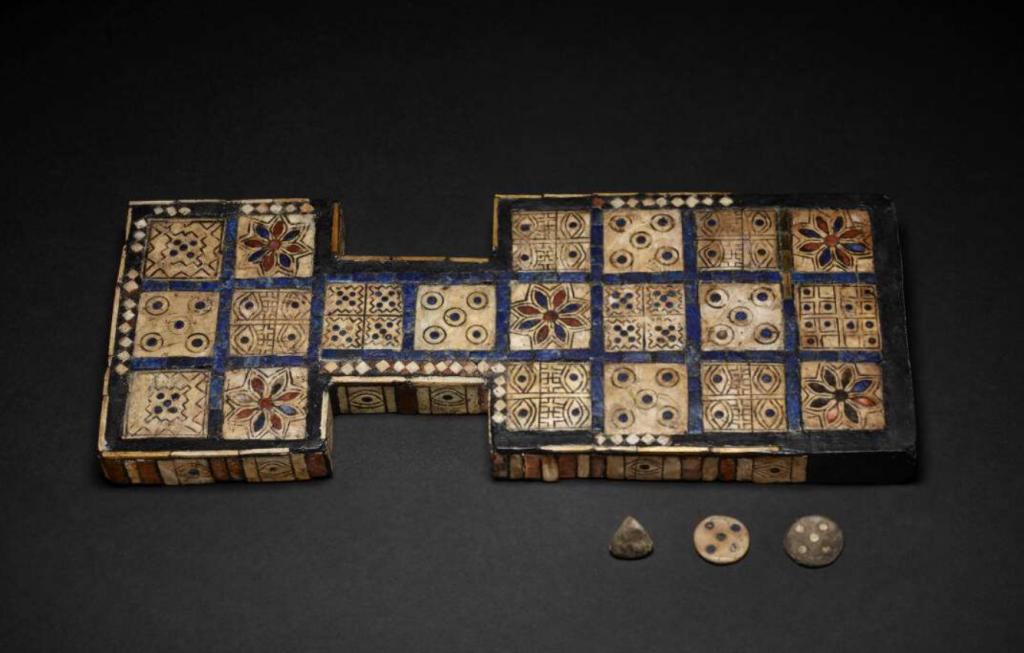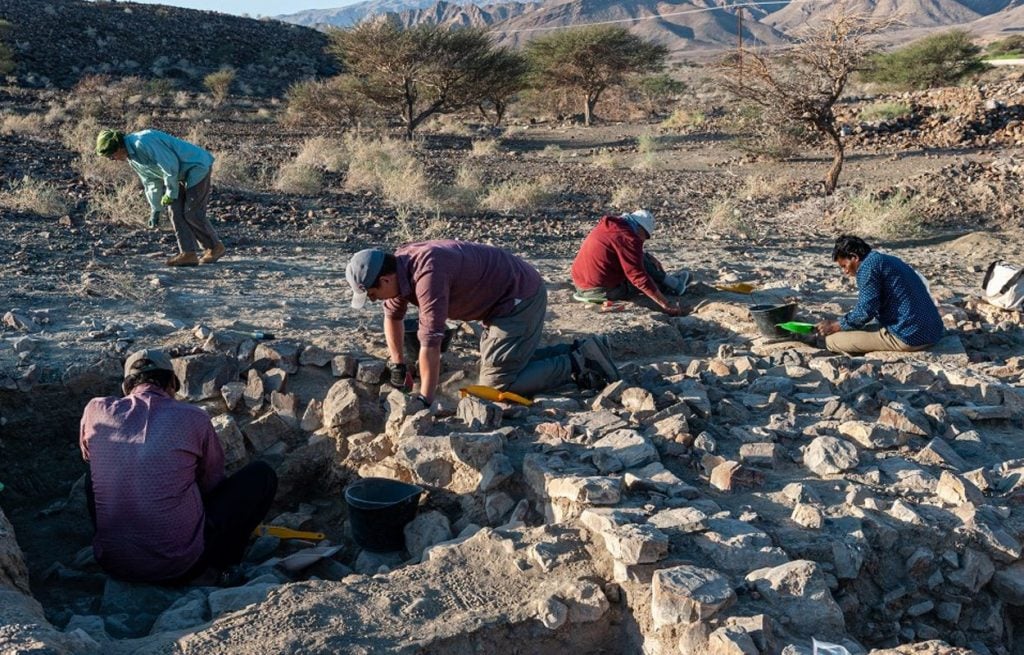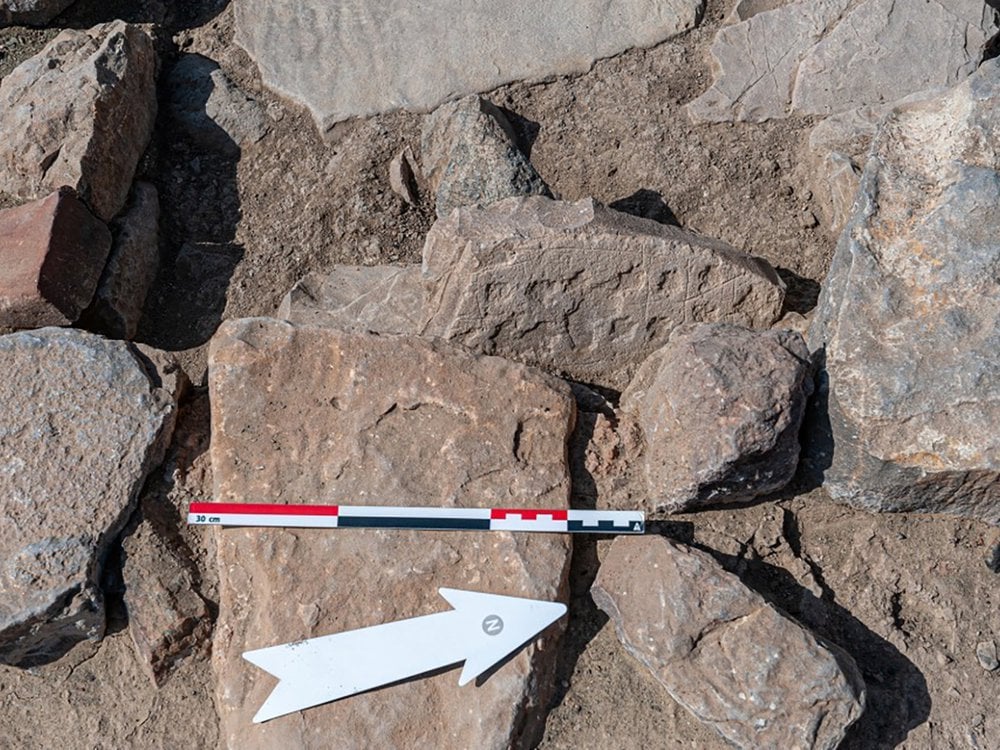Archaeology & History
Archaeologists Have Unearthed a 4,000-Year-Old Board Game. Now They Just Have to Figure Out the Rules
What are the mysterious cup holes for?

What are the mysterious cup holes for?

Archaeologists in Oman have found 4,000-year-old stone board game at a Bronze and Iron Age settlement site near the village of Ayn Bani Saidah in the northern Hajar mountains’ Qumayrah Valley.
“Such finds are rare, but examples are known from an area stretching from India, through Mesopotamia even to the Eastern Mediterranean,” Piotr Bielinski, a University of Warsaw archaeologist who co-led the excavations, said in a statement. “The most famous example of a game board based on a similar principle is the one from the graves from Ur,” an ancient royal cemetery in Iraq.
The ancient game he is referring to was discovered in 1922, is about 4,500 years old and is a two-player game similar to backgammon. It is now in the collection of the British Museum in London.
The newly discovered large stone board in Oman had grid-like markings seemingly indicating different fields of play, as well as cup holes. Its rules have been lost to time.

Archaeologists excavating a Bronze Age and Iron Age settlement near the village of Ayn Bani Saidah in Oman. Photo by J.Sliwa, courtesy of the Polish Centre of Mediterranean Archaeology, University of Warsaw.
An Omami-Polish team from the University of Warsaw’s Polish Centre of Mediterranean Archaeology and Oman’s Ministry of Heritage and Tourism has been conducting the field work, led by Bielinski and the ministry director general of antiquities Sultan Al Bakri. The area surrounding the dig is one of the least-studied regions of Oman—but finds made by recent studies suggest the Qumayrah Valley was part of a major trade route between several Arab cities.
“This abundance of settlement traces proves that this valley was an important spot in Oman’s prehistory,” Bieliński told the Daily Mail.

A 4,000-year-old board game found near the village of Ayn Bani Saidah in Oman. Photo by J.Sliwa, courtesy of the Polish Centre of Mediterranean Archaeology, University of Warsaw.
Digs at the site, which has been the subject of excavations since 2015, have also yielded four towers—one at least 60 feet tall—and the first evidence of copper smelting in the region.
“This shows that our settlement participated in the lucrative copper trade for which Oman was famous at that time,” Bielinski said in a statement.
Plans are to continue excavations near Ayn Bani Sa’dah, as well as to investigate the other end of the valley, near Bilt.